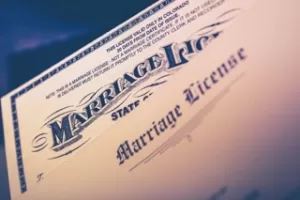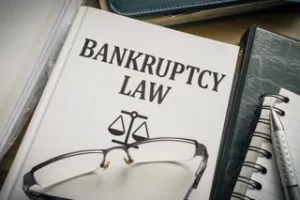We’re all familiar with the American phenomenon of the “big lawsuit”: a major corporation lines up on one side, on the other side are victims of an oil spill (or tobacco smoke or polluted waters or defective products or stolen ideas, etc.), and in between are armies of aggressive lawyers in dark suits, yapping back and forth at each other in legal terms that sound like a foreign language. There is usually a lot of drama, powerful testimony, loads of paperwork, and a huge settlement at the end, in the hundreds of millions or even billions of dollars.
Trials like these, profiled in such hit movies as The Rainmaker, A Civil Action, and Erin Brockovich, among others, do actually happen in courts across the country. However, far more common in our courts is a smaller, less-complex type of trial, that nonetheless addresses real legal issues and problems faced by people in everyday life. This is the small claims trial. While small claims court cases rarely provide the drama that is seen in legal novels and movies, they do often provide an effective and efficient method of resolving disputes between citizens. This article will focus primarily on the rules and procedures of small claims in Marion County, Indiana. However, you will find that the basic procedures of many small claims courts are very similar, regardless of location.
Claim, Complaint, and other Terms
First, a few definitions are in order before going further into details about small claims cases. For better clarity, let’s use a fictitious case for an example. Main Street Properties is an apartment management company, with many units and several hundred tenants. One of Main Street’s tenants, Lisa Johnson, is on a yearly lease, which runs from January 1st to December 31st of 2016, and she pays $600 per month for her apartment. While Lisa was good about paying her rent on time for the first few months, beginning in April, her payments began to be late, and in June, she stopped paying rent all together. Having fallen on hard times, Lisa informs Main Street Properties that she will be ending her lease early, and she moves out on August 1st, 2016. Main Street alleges that Lisa has broken her lease agreement, and the company decides to take her to small claims court to retrieve the money due to them.
In this fictitious case, Main Street Properties would be the “plaintiff,” the person or organization who is initiating a suit against another person or entity. Lisa Johnson would be the “defendant,” the person or organization against whom a suit is being initiated. Main Street’s case that it will be taking before the court, alleging that Lisa Johnson broke the lease and owes them money, is called their “claim.” They will formally initiate a lawsuit against Lisa Johnson by filing a “complaint” with the court. Next, Main Street Properties would “serve” the complaint on Lisa Johnson, meaning they would make sure that a copy of the complaint was delivered to her, to put her on notice that she was being sued. Included with the complaint served on Lisa Johnson would be a “summons,” which is an order from a court to appear before it on a particular matter – in this case, the matter of Main Street Properties’ lawsuit and allegations.
Rules of the Court
Now that we’ve defined the primary terms that are likely to come up in a small claims case, we can move on to the specifics of initiating your own claim. The first thing to look at when considering a small claims filing is the question of whether your claim is even eligible to be heard in small claims court. In order to file a claim in small claims courts in Marion County, the following requirements must be met:
- Your claim must fall under the jurisdiction of the court you are suing in. This means that the court must have the authority to hear the case that you are bringing.
- Your claim must be filed in the proper county.
- Your claim must name the parties to the action, i.e. you must state who it is that you are suing.
- Your claim must be filed before the Statute of Limitations on your particular issue has expired.
- The value of your suit may not exceed $6,000. If it does, you will be prevented from bringing the action in small claims court, and will need to file a formal suit in civil court.
The Process
Now that you understand the rules and requirements of small claims court, we will walk through the specifics of filing your claim. Let’s return to the landlord-tenant example we used above. Main Street Properties wants to sue their former tenant Lisa Johnson, because she broke her lease early, and left without notifying the company or paying the rent that was still due. While Main Street could file in regular civil court, it would prefer, in this instance, to use small claims court, because it is less formal, there aren’t as many tedious rules and requirements, and the process will likely be faster and cheaper for Main Street in small claims than it would be in civil court. Therefore, Main Street will first assess its claim, and determine whether it meets the requirements of small claims court.
- Does Main Street’s claim fall under the court’s jurisdiction? Before a claim may be heard in any court, that court must establish its authority to hear the matter. A court’s jurisdiction may be determined by several things, such as the subject matter, the court’s location, whether the court has authority of the persons named in the suit, etc. In this case, because Main Street is an Indianapolis company, and Lisa Johnson is an Indianapolis resident, and because most of the incidents in question occurred in Indianapolis, Main Street determines that the court may properly assert jurisdiction over this matter.
- Is the claim being filed in the proper county? Main Street must also file the claim in the proper county. The Indiana Small Claims Rules Manual lays out five parameters that will help the lawsuit’s initiator determine the proper county to sue in:
- where the transaction or occurrence actually took place; or
- where the obligation or debt was incurred; or
- where the obligation is to be performed; or
- where the Defendant resides; or
- where the Defendant has his or her place of employment at the time the claim or suit is filed.
In order to properly bring this action in a Marion County small claims court, Main Street only needs to meet one of the above requirements. Looking over the list, Main Street concludes that they at least meet the first three: the occurrence took place in Indianapolis, Marion County; Lisa Johnson’s debt was incurred in Marion County; Lisa Johnson was obligated to pay this debt in Marion County. Main Street is not clear where Lisa Johnson lives or works at the current moment, but that is okay, because they meet several other requirements, and are therefore qualified to bring the suit in a Marion County small claims court.
- Does the claim properly state who the parties are to the action? Main Street will have to specify themselves as the plaintiffs, and Lisa Johnson as the defendant in this case.
- Has the statute of limitations on this issue already expired? Main Street will have to research this, but it is highly likely that, given the short amount of time that has passed since the incident took place, the statute of limitations has not expired on this claim.
- Does the value of this suit exceed $6,000? Remember, while small claims rules typically share some similarities across jurisdictions, the rules in question here pertain to Center Township Small Claims Court, in Marion County, Indiana, where Main Street is hypothetically suing Lisa Johnson. Some small claims courts offer higher dollar value thresholds, going up to $15,000 or more. However, here Main Street would be limited to $6,000. In this situation, Lisa stopped paying and abandoned her lease in June, so that means that she has seven months’ worth of payments (June-December) that she still owes to Main Street Properties. At a monthly rent rate of $600, that means she owes Main Street $4,200 for the rent. Even if Main Street adds in fees, late penalties, and interest, it is likely that the total will still come in under the $6,000 threshold when everything is added up. If not, they will be ineligible to sue in small claims, and will need to move their claim up to a standard civil case, likely in Marion Circuit or Superior Court.
The Trial
It is possible that Main Street and Lisa Johnson will be able to work out some sort of settlement before the issue goes to trial. It would definitely be in Lisa’s interest to contact Main Street before trial, and attempt to work something out. Perhaps she could pick the lease back up where she left off, and just pay late fees. Or, maybe Main Street would allow Lisa to break the lease early, provided that she pay for three of the seven months remaining on her lease, and also that they could find a replacement renter in a short amount of time. In any case, it is best for the parties to at least try to work out something before trial. Courts look favorably on parties who work in good faith to compromise, and very often these efforts at settlement are in the best interests of both parties, because going all the way to trial – even in small claims court – can be costly, time-consuming, and risky.
However, if Lisa and Main Street are not able to work things out on their own, then a trial will be necessary. The court will set a trial date, and on the appointed day, the two parties will show up for court. While juries may be requested for some small claims trials, the vast majority of these trials are conducted as “bench trials,” i.e., they are heard only before a judge, who then makes a final judgment after listening to both sides. Also, small claims court is not burdened by all of the rules and procedures that accompany standard civil trials; however, small claims trials still have a general format and flow to them, and in many ways they resemble standard trials.
Since Main Street initiated the case, they will be called on first in court, to present their case. Main Street will present its witnesses, offer up evidence, and make its overall case to the judge as to why he or she should rule in their favor. When they are finished presenting their case, Lisa Johnson will do the same, presenting witnesses and evidence which support her position, and explaining to the judge why the case should be decided in her favor. Once both sides have had the opportunity to present their cases, the judge will then either make an immediate judgment, or take some time to think the case over, and render a judgment at a later time.
Conclusion
While being involved in a lawsuit and going to court is always accompanied by some stress and complexity, the small claims court process can eliminate much of the anxiety of such situations. Where two parties are in a dispute over something relatively minor, the small claims court system provides a platform for them to achieve a legal resolution in a simple, straightforward, and cost-effective way.
NOTE
This article primarily references Indiana law. Please check the laws of your local jurisdiction if you live in another state.
The articles in this blog are for informational purposes only. No attorney-client relationship is established through the publication of these articles.







